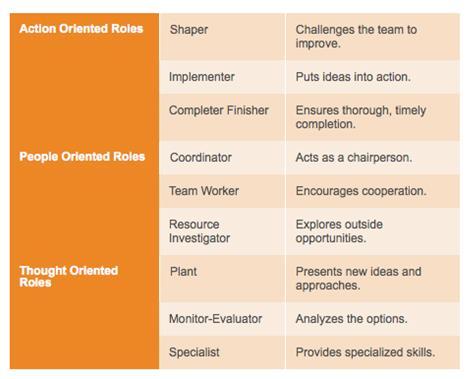Creating High-Performing Teams – The 7 Crucial Recipe Ingredients
Creating high-performing teams isn’t something that comes easy. It takes a combination of different ingredients. Moreover, you must remember that great teams are about personalities, not just skills.
Every leader needs a high-performing team. Your people are the reason for your success. Without them, it’s impossible for your organisation to get results.
But what makes a high-performing team? Is it as simple as finding skilled individuals?
Unfortunately not. You have to consider much more than the attributes that a person brings to the table. Every team needs a mixture of ingredients to turn it into a success. Here are the 7 Crucial Ingredients in the recipe for Creating High-Performing Teams.
Creating High-Performing Teams: Ingredient #1 – Complementary Skills
A team may have one large task, but there are several smaller tasks that make up that large task. Each of these smaller tasks requires different skills. Some may lean towards the technical side, such as Big Data analysis. Others may need someone who has a creative spark to figure out how to put it all together.
The point is that you can’t create a team of individuals who all have the same skills and expect it to function well. Instead, each member must bring something unique to the table.
This serves two purposes. Firstly, it means that each team member understands what their role is. This helps them focus on what they need to do to bring the team closer to its larger goal. The second is that it makes it easier for you to assign tasks. You know who does which job well, which means you assign roles that complement the skills of your people.
This boils down further to the point where you have to consider the personalities of each individual. For example, you can’t create a team full of leaders. They’ll often have conflicting views and will try to pull the team in different directions. However, you also can’t fill a team with people who focus on the little things. That team will lose sight of the bigger picture.
Instead, you need a variety of personality types that complement each other. A detail-oriented person will help a leader to see the little things they may have missed. But the leader will also ensure the detail-oriented person’s work keeps pace with the team.
Simply put, it’s important to remember that great teams are about personalities, not just skills.

Figure 1 – http://www.paulkeijzer.com/5-ingredients-become-high-performance-teams/
Creating High-Performing Teams: Ingredient #2 – A Strong Leader
The second ingredient in creating high-performing teams focuses on what you bring to the table. A Strong Leader brings the team together and helps it to focus on its goals. A poor leader passes the buck and damages the morale of the team’s members.
So, how do Strong Leaders contribute to the attributes of high-performing teams? You must do the following:
- Help the team reach smart decisions faster.
- Have the ability to bring everybody around to a single consensus.
- Be able to get several experts to pool their talents, rather than having them work in silos.
- Understand the importance of working with the organisation’s expectations in mind.
- Be open to new ideas, even if you don’t necessarily agree with them.
- Understand that the organisation’s rules apply to you as they do your team members.
Moreover, you must understand that the financial aspect is not the only way to motivate teams. In fact, high-performing teams need leaders that focus on more than money.
Deloitte’s annual millennial survey points this out. It found that 90% of millennials believe that good leaders focus on more than financial issues.
It’s all about how you work with people. Results come when your people have a Strong Leader.

Creating High-Performing Teams: Ingredient #3 – Diversity
Don’t make the mistake of thinking that Diversity is some sort of quota that you need to meet. It’s all about finding people who can influence the direction that your teams take.
Diversity means finding people of different backgrounds who also have different workplace experiences. It could be as simple as combining some experienced older heads with new hires who offer a fresh take on today’s society. However, it can be as complex as considering how people of varying backgrounds can bring different perspectives to your work.
The point is that diversity equips your team with the ability to take on more challenges. That makes it one of the key attributes of high-performing teams. A team full of people with the same backgrounds and experiences has limits on the types of tasks it can take on.
Creating High-Performing Teams: Ingredient #4 – High Performing Teams Have a Shared Vision
Each member of your team has different goals. Some may be working towards starting a family. Others want to work for organisations whose ethics mirror their own. Perhaps some want to work towards building a nest egg for retirement.
As a leader, you must understand the individual motivations of each team member. However, you must also understand the importance of unifying these varying agendas. The team need a single, shared purpose.
This is one of the key steps in creating high-performing teams. It’s about taking a group of talented people and turning them into a team that works for each other and the organisation.
If your team both understand and believe in your Vision, it achieves better results. Members have the motivation needed to push that little bit more when dealing with difficult situations. They’ll also put their own interests aside to achieve the organisation’s goals.
So, how do you create a shared Vision for your team?
A good Vision stimulates teams on both the emotional and intellectual levels. It challenges and excites them, which inspires them to work towards it.
Creating High-Performing Teams: Ingredient #5 – Trust
Never underestimate the importance of Trust in the recipe for creating high-performing teams. The moment members start to doubt you, or each other, is the moment that productivity starts declining.
Individuals must feel comfortable enough to express their point of view. This means creating a collaborative environment that doesn’t punish people for having ideas.
It also means being transparent. To encourage openness and honesty in your team, you must personify both of those qualities yourself. Transparent leadership shows that you have nothing to hide, which builds trust for you into your teams. Members know what direction you’re leading them in and what your intentions are.
This means being honest about the risks and rewards attached to each project. Don’t hide information from your teams. Instead, share the full scale of their challenges with them and encourage them to come up with ideas. Most importantly, listen to the ideas they contribute.
Over time, you’ll develop the trust that high-performing teams need. This ensures they collaborate effectively on difficult projects.

Creating High-Performing Teams: Ingredient #6 – Empowerment
Do your teams have the ability to make decisions on their own? Or, do you have final say on every decision?
If you fall into the latter camp, you’re hindering your team’s ability to get results. Every decision has to run through you, which creates delays in the workflow. If you’re not available to make an immediate decision, your team’s work grinds to a halt.
Furthermore, not allowing individuals to make decisions demonstrates a lack of trust. You’re telling them that you doubt their abilities to make the right choices. As a result, they have to run everything past you.
Empowerment is one of the key attributes of high-performing teams. Without it, you create frustrated teams that are constantly reminded that they’re not capable of making small decisions. This saps motivation and may even lead to resentment building up for you.
Empowerment means understanding the skills that each team member has. For example, it means recognising that somebody in the team may understand risk analysis better than you. As a result, they’re best placed to make decisions related to project risk.
Implement this line of thinking throughout the team. If somebody has the skills needed to make decisions, allow them to do so. This extra responsibility acts as a motivator and confidence builder. You’re letting people do the jobs that you pay them to do, which always leads to better results.
Creating High-Performing Teams: Ingredient #7 – Adaptability
The old saying that “Rome wasn’t built in a day” applies to your team. You can’t expect to get everything right at the first time of asking. One of the key steps in creating high-performing teams is to recognise that constant improvement plays a role.
This applies to every aspect of the team. From the processes the team uses through to how you assign work, there are always ways to improve productivity and get better results.
This process can take several months. In the case of long-term projects, it may even take several years. As a result, your team must have the adaptability to allow it to change the way it works to suit the needs of the project.
Adaptability lends your team several advantages. For one, it’s not stuck in a stagnant work process. This means the team can spot potential issues early and can adapt its processes to meet those challenges.
Moreover, Adaptability means your team can find several solutions to a single problem. This gives you options for every project that you work on. If something prevents you from implementing your favoured solution, you always have other ideas to fall back on.
Here’s the point. Adaptability ensures the continued evolution of your team. It allows the collective to analyse its performance and figure out what it could do better. As a result, each project leads to the team becoming a better-oiled machine.
The Final Word
So, what ingredients go into Creating High-Performing Teams?
Finding the right people is just the first ingredient. Once you have a team, your focus switches to maximising each member’s skill set. You have to build trust, empower individuals, and adapt to the different challenges the team faces.
This creates a motivated team that produces great results. To get that team you must:
- Hire based on personalities as well as skills
- Look for diversity in backgrounds and experiences
- Build trust within the team
- Create a shared vision
- Empower individuals to make their own decisions
- Evolve alongside new challenges
- Provide strong and transparent leadership.
Combine these ingredients and you have the recipe for high-performing teams.
And remember, a great manager can DOUBLE the capacity of their people.
Register for our next webinar to learn more about creating high-performing teams.





